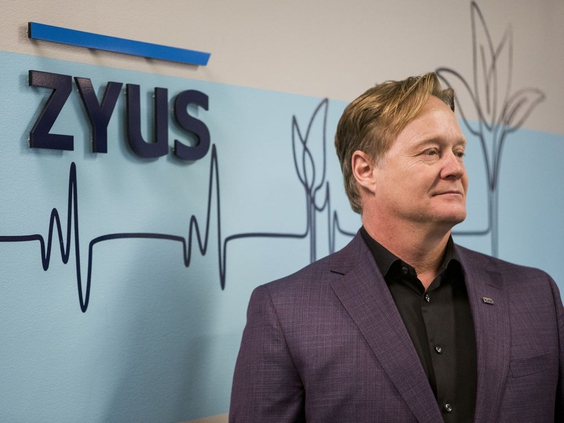
Saskatoon company isolates coronavirus antigen in plant cells
Brent Zettl (BSA’90), CEO of Saskatoon life sciences company, ZYUS Life Sciences Inc., says they have successfully isolated the antigen for SARS-CoV-2 in plant cells.
By Zak Vescera | Saskatoon StarPhoenixA Saskatoon life sciences company known for its work with medical cannabis says it has successfully isolated the antigen for SARS-CoV-2 in plant cells.
Zyus Life Sciences Inc. CEO Brent Zettl (BSA’90) says, in an interview with the Saskatoon StarPhoenix, it’s an important first step that shows plants can effectively “photocopy” proteins that could be ingredients in a COVID-19 vaccine.
Zyus announced in May that it had partnered with the University of Saskatchewan’s Vaccine and Infectious Disease Organization — International Vaccine Centre (VIDO-InterVac) on the company’s efforts to replicate a SARS-CoV-2 antigen in plants.
Antigens trigger an immune response in the body, causing it to produce antibodies that fight it. They’re a vital ingredient in candidate vaccines for COVID-19, including a separate one that VIDO-InterVac has been developing since January.
Zettl said the antigen Zyus has managed to isolate, express and purify triggered a “very strong” response from antibodies taken from recovered COVID-19 patients, which indicates the company is on the right track.
He said the next step is to “polish” the purification process to make sure the results can be replicated consistently.
“We want to really make sure that it really, truly is functional, and secondly that we can produce this repeatedly and consistently in the right dose.”
After that, Zyus would give the antigen to VIDO-InterVac to test in animals. Zettl said that might happen as early as this fall.
Such antigens are typically obtained through mammalian expression by replicating the needed proteins in animal cells.
Even though Zyus’s work lags significantly behind other groups producing a COVID-19 vaccine, Zettl said the research might shed light on another potential way of making important vaccine components.
“We’ve got a lot of road ahead us to demonstrate that it’s still really functional,” Zettl said.
Article originally published on https://thestarphoenix.com.

